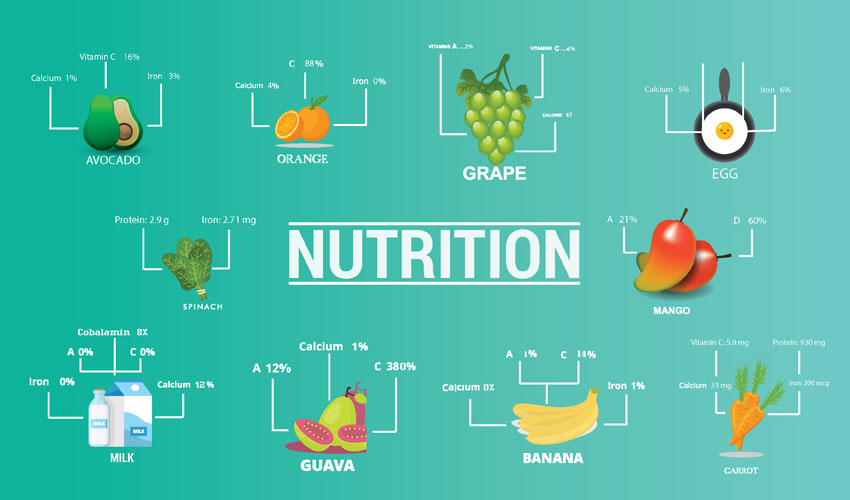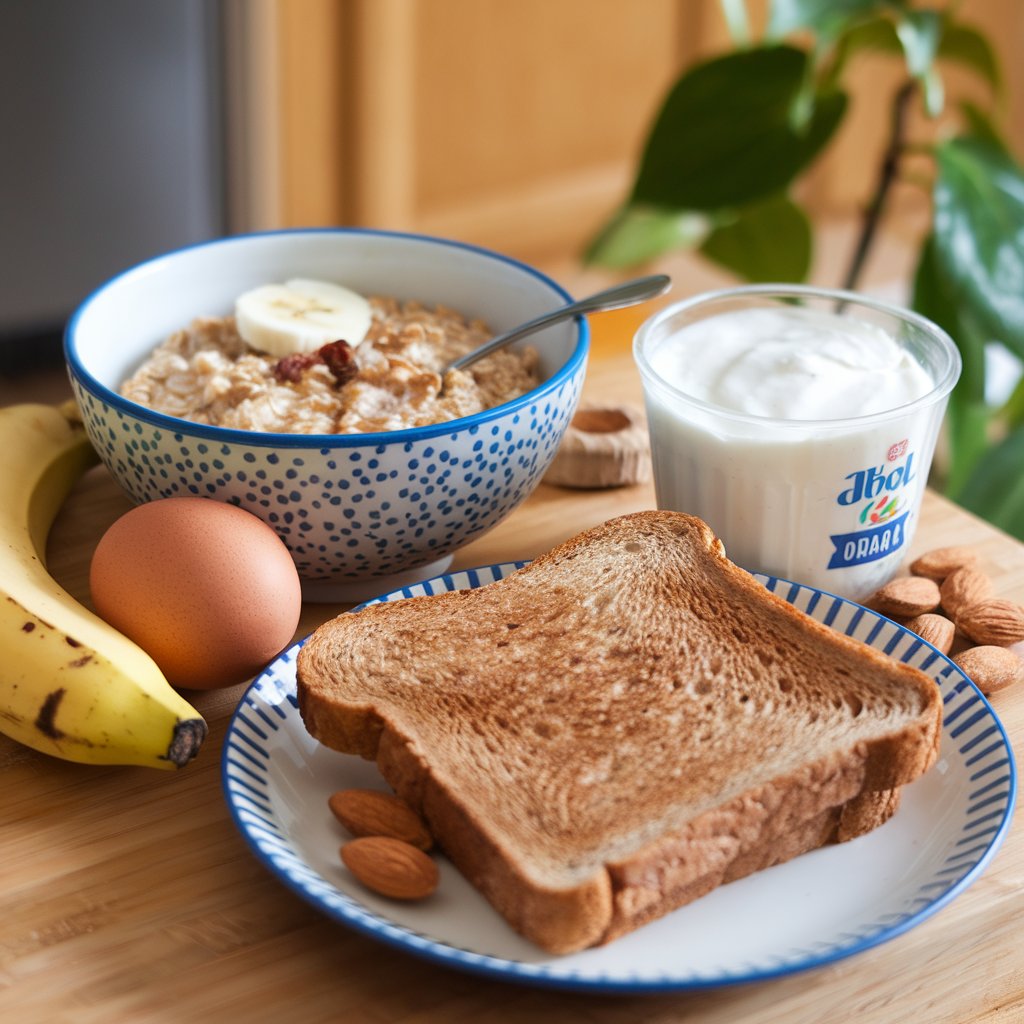(Nutrition concepts and controversies) Low-carb and low-fat diets are controversial; a balanced diet with healthy fats and carbs is ideal.
Nutrition is essential for maintaining good health, and it involves understanding both macro and micronutrients. Controversies often arise around certain diets, but a balanced approach with healthy fats, carbs, and proteins is considered the best way to nourish the body.
What are the basic concepts of nutrition?

Source: basicconcept
Here’s the explanation of the basic concepts of nutrition with simpler words:
Macronutrients (Nutrients needed in large amounts):
These are nutrients that give our body energy to work and grow. There are three main types:
- Carbohydrates: These are the main source of energy for the body. Foods like bread, rice, pasta, fruits, and vegetables provide carbohydrates. There are two types: simple (like sugar) and complex (like whole grains). Fiber, which helps digestion, is also a type of carbohydrate.
- Proteins: Proteins help build muscles, repair tissues, and support the immune system. You can get protein from foods like meat, eggs, beans, nuts, and tofu. Protein is made of small parts called amino acids, which the body needs to stay healthy.
- Fats: Fats give us energy and help protect our organs. They are also needed to absorb vitamins. Healthy fats come from foods like olive oil, avocados, and nuts. Avoid too much unhealthy fat, found in fried food and processed snacks, because it can be bad for the heart.
Micronutrients (Nutrients needed in small amounts):
These are vitamins and minerals that are essential for our health, even though we need them in small amounts.
- Vitamins: Vitamins help with many body functions, such as keeping our skin healthy, supporting our immune system, and helping us get energy from food. Examples include vitamin C (in oranges) and vitamin D (from sunlight).
- Minerals: Minerals like calcium, iron, and potassium are important for strong bones, good blood flow, and keeping the body’s systems working well. Calcium is found in milk and leafy greens, while iron is in meat and beans.
Water:
Water is essential for life. It helps carry nutrients around the body, keeps us hydrated, and helps in digestion. Drinking enough water every day is crucial for energy, digestion, and overall health.
Fiber:
Fiber is a type of carbohydrate that doesn’t get digested but helps keep the digestive system working well. It is found in foods like fruits, vegetables, whole grains, and beans. Fiber helps with bowel movements and can keep your cholesterol in check.
Balanced Diet:
A balanced diet means eating a variety of different foods in the right amounts to get all the nutrients you need. This includes foods from all groups: fruits, vegetables, proteins (like meat or beans), whole grains, and healthy fats. A balanced diet helps your body stay healthy and strong.
Caloric Intake and Energy Balance:
Calories are a measure of energy in food. The body needs a certain number of calories each day to work and stay active. Energy balance happens when the number of calories you eat equals the number of calories your body uses. Eating too many or too few calories can affect your health.
In short, nutrition is about giving your body the right nutrients it needs to stay healthy and function properly. By eating a variety of healthy foods and drinking enough water, you can support your body’s needs and feel your best.
Also Read: Kirkland Rotisserie Chicken Nutrition – Healthy Meal Ideas!
Why are low-carb and low-fat diets so controversial?

Low-Carb Diets:
- What it is: Low-carb diets cut down on foods like bread, pasta, and sugar and focus on eating more protein and fats.
- Pros: Can help with quick weight loss and control blood sugar.
- Cons: Not easy to stick to long-term and may lack important nutrients like fiber.
Low-Fat Diets:
- What it is: Low-fat diets limit the amount of fat you eat, especially unhealthy fats.
- Pros: Can lower the risk of heart disease and help some people lose weight.
- Cons: If you replace fat with too many sugary foods, it can be harmful.
Why the Debate?
- Different Results for Everyone: What works for one person might not work for another.
- Long-Term Health: Both diets can help short-term, but experts worry they might cause problems if followed for too long.
Many believe a balanced diet with both healthy fats and carbs is the best option.
Is sugar really as harmful as people say?
Sugar can be harmful, but it depends on how much and what type of sugar you eat.
Why Sugar Can Be Harmful:
- Too much sugar (especially from sweets, sodas, and processed foods) can lead to weight gain, increase the risk of heart disease, diabetes, and tooth decay.
- Refined sugars (like those in candy and sugary drinks) can cause blood sugar spikes, which may lead to energy crashes and increase cravings.
But What About Natural Sugar?
- Natural sugars found in fruits and vegetables are not harmful when eaten in moderation. These foods also have fiber, vitamins, and minerals that are good for health.
The Key: Moderation
Sugar itself is not “bad,” but too much added sugar in your diet can cause health problems. It’s important to enjoy sugary foods in moderation and focus on whole foods that contain natural sugars.
Also Read: Jack Daniels Hard Tea Nutrition Facts – Nutrition and Flavor Guide!
Are plant-based diets healthier than diets that include animal products?
Plant-Based Diets:
- Healthy: High in fiber, vitamins, and antioxidants, which are good for heart health and may reduce the risk of diseases.
- Low in unhealthy fats: They tend to have less saturated fat, which is better for your heart.
Diets with Animal Products:
- Complete proteins: Animal foods provide all the essential proteins your body needs.
- Rich in nutrients: They give you important nutrients like vitamin B12, iron, and omega-3s, which are harder to get from plants.
Which is Better?
Both diets can be healthy if done right. A plant-based diet is healthy but needs to include certain nutrients like B12 and iron. A balanced diet with both plant and animal foods can also be healthy.
In short, it’s about eating whole, nutritious foods and getting a good balance of nutrients.
Do detox diets really work?
What Detox Diets Do:
- They often involve fasting or eating only certain foods like juices, fruits, or vegetables for a short period.
- Many people feel lighter or lose weight temporarily, but this is usually due to water loss or eating fewer calories, not because toxins are being removed.
Do They Really Work?
- The body already detoxes: Your liver, kidneys, and digestive system naturally remove toxins, so detox diets aren’t really necessary.
- Short-term effects: While detox diets might make you feel better temporarily, they don’t provide long-term health benefits or remove toxins more effectively than your body already does.
FAQ’s
1. What are the basic concepts of nutrition?
Nutrition is about getting the right nutrients (carbs, proteins, fats, vitamins, minerals, and water) your body needs to stay healthy and function properly.
2. Why are low-carb and low-fat diets controversial?
Both diets work for some people but can be hard to stick to and may lack important nutrients. A balanced diet is often recommended for long-term health.
3. Is sugar really harmful?
Too much sugar, especially refined sugars, can cause health problems like weight gain and heart disease. Natural sugar from fruits is not harmful when eaten in moderation.
4. Are plant-based diets healthier than diets with animal products?
Both diets can be healthy if done right. Plant-based diets are rich in fiber and nutrients, while diets with animal products provide complete proteins and certain vitamins.
5. Do detox diets really work?
Detox diets may offer short-term benefits but aren’t necessary because the body naturally detoxifies. A healthy diet and hydration are key to supporting your body’s detox process.
Conclusion:
Nutrition involves balancing macronutrients and micronutrients to maintain good health. Controversies around diets like low-carb and low-fat arise due to differing results for individuals. While detox diets may provide short-term benefits, they aren’t necessary as the body naturally detoxifies. A balanced diet with whole foods is the healthiest long-term choice.